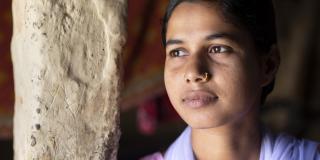
The ‘Leave No One Behind’ consortium, of which VSO is a member, is a coalition of twelve NGOs working in Bangladesh, India, Kenya, Nepal and Vietnam to gather data on progress towards the Sustainable Development Goals (SDGs) and to incorporate SDGs into national policies and legislation in those five countries.
‘Leave No One Behind’ (LNOB) is co-ordinated by the International Civil Society Centre, and VSO is the consortium lead for this work in Kenya and Nepal.
The partnership brings together national NGOs with civic platforms and community-based organisations with the goal of making the voices of marginalised groups heard and be counted in the implementation of the SDGs. It puts marginalised communities at the forefront of its project design, involving them in generating monitoring data at local level.
Why is monitoring needed?
One of the key shortcomings of the Millennium Development Goals (MDGs), which preceded the SDGs, was that the poorest and most vulnerable 20% of the global population were not included in evidence and data-gathering in order to identify how the SDGs could be implemented. This meant that their needs were not taken into account when local and national governments created frameworks on SDG implementation.
A UN SDG report from 2016 emphasised that the data which was needed in practice to identify and address the challenges of vulnerable groups was unavailable, and that more investment was needed to obtain higher-quality data related to the lives of the world’s most marginalised people. The UN World Data Forum 2017 confirmed that ‘unofficial data’ by non-state actors can play a critical complementary role in this process, which is the gap that the data gathered by LNOB is attempting to fill.
Using data and insights gathered from LNOB’s work, partners in the action countries have entered into a dialogue with local and national governments, aiming for the official recognition of this data to make it a source of public planning. Marginalised communities are also empowered to take part in these dialogue, enabling them to address their needs and challenges face-to-face with authorities.
How is data gathered?
Methods used to gather data include community dialogues, community participation forums and scorecards. Much of this work is carried out by volunteers, who are able to bridge the gap between civil society organisations and local communities, bringing their own embedded knowledge of cultures and communities to inspire trust and facilitate dialogue.
Case study: ‘Leave No One Behind’ in Nepal
A VSO led a consortium which included ActionAid, World Vision, Plan International, CBM Nepal, WWF Nepal, Beyond Beijing Committee, CARE Nepal and ADRA Nepal to gather citizen generated data on progress towards the SDGs in communities across Nepal, focusing on SDGs 4, 10, 13 and 16 and engaging over 6,000 primary actors.
The goal was to create more inclusive data collection processes, which particularly engaged marginalised groups. The target groups identified were women and girls, people with disabilities, and members of the Muslim, Tharu, Dalit and Musar communities. Individuals from these groups were invited to participate in community dialogues, which made use of social accountability tools including community scorecards, in order to gather data on their experiences.
The initial findings included information on discrimination experienced by Dalit women and adolescent girls, including violation of their fundamental rights, the issue of gender discrimination in schools in the Morang district, and the impact of harmful norms and culture on women in the Kailali district. This research also found that women were being paid less than men for the same work, that women were not participating in decision-making processes in the home, and that families were prioritising paying for boy’s education over girls, leading to fewer girls in school.
This data gathering also generated recommendations for how local and national policies can improve the lives of women and girls in Nepal. These recommendations included doing more to provide educational opportunities for girls, working to change gender norms around women’s roles in unpaid care work, raising awareness of the costs of gender discrimination, and working to increase women’s engagements in economic activities.
Because these evidences and recommendations were generated by communities themselves, communities feel ownership over policies and processes designed to improve gender equality.
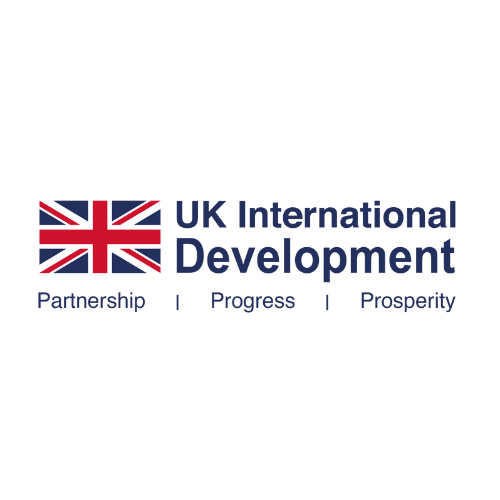
This data was also integrated into national data used by the government of Nepal, meaning that the country has a more accurate overview of the issues faced by marginalised groups within the overall population. It was also used to influence local plans and frameworks on SDG implementation, which took into account the recommendations made by women and girls.
This work is funded by UKAid under the ‘Volunteering for Development’ programme which seeks to improve access to basic services and opportunities, increase the agency of extremely poor and vulnerable people and build their resilience to the shocks and stresses that threaten their advancement from poverty.
Find out more
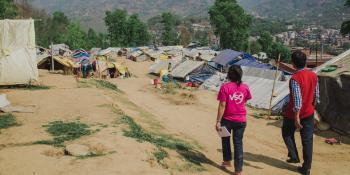
UK Aid Volunteering for Development
Driving volunteer impact to deliver improved health, education and livelihoods outcomes for two million people.
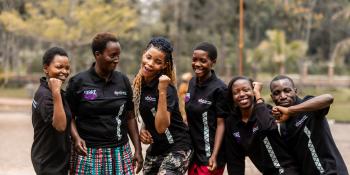
Influencing and advocacy
VSO influences policy at national, regional and international levels. We bring the experience of volunteers, partners and marginalised people to decision makers.
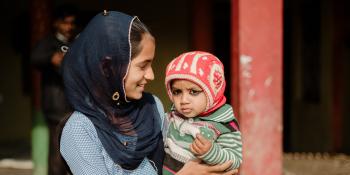
Nepal
We've worked in Nepal since 1964, building healthy communities, strengthening inclusive education systems, and developing community resilience.
